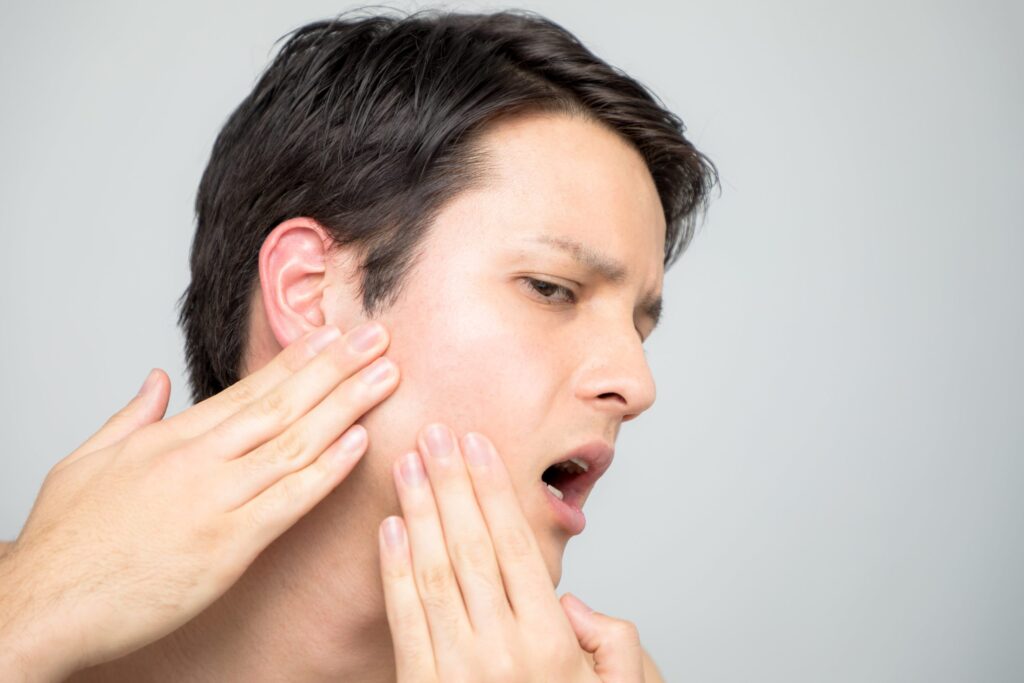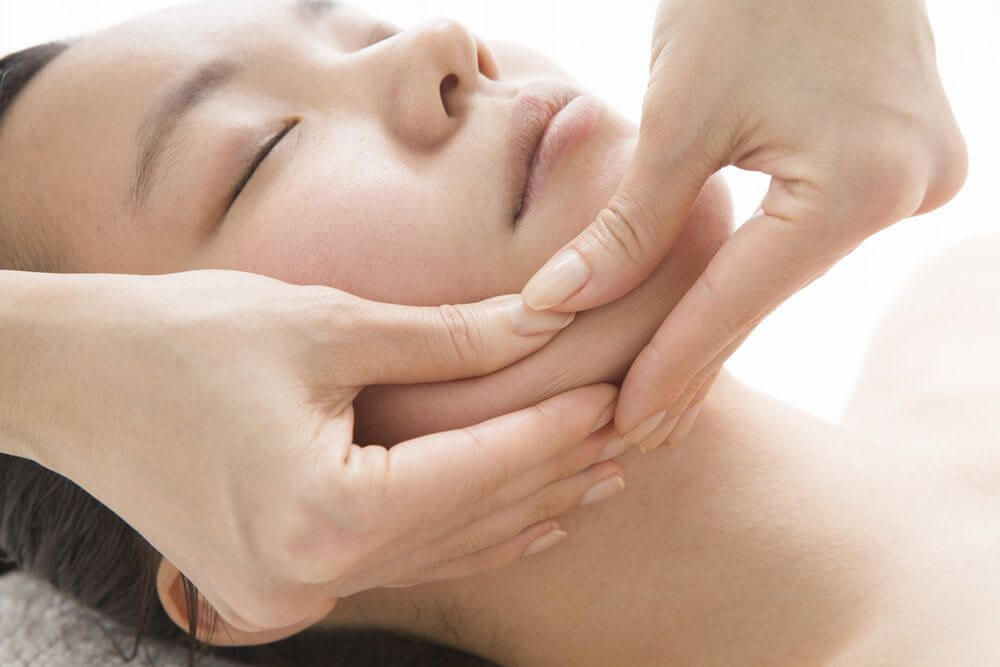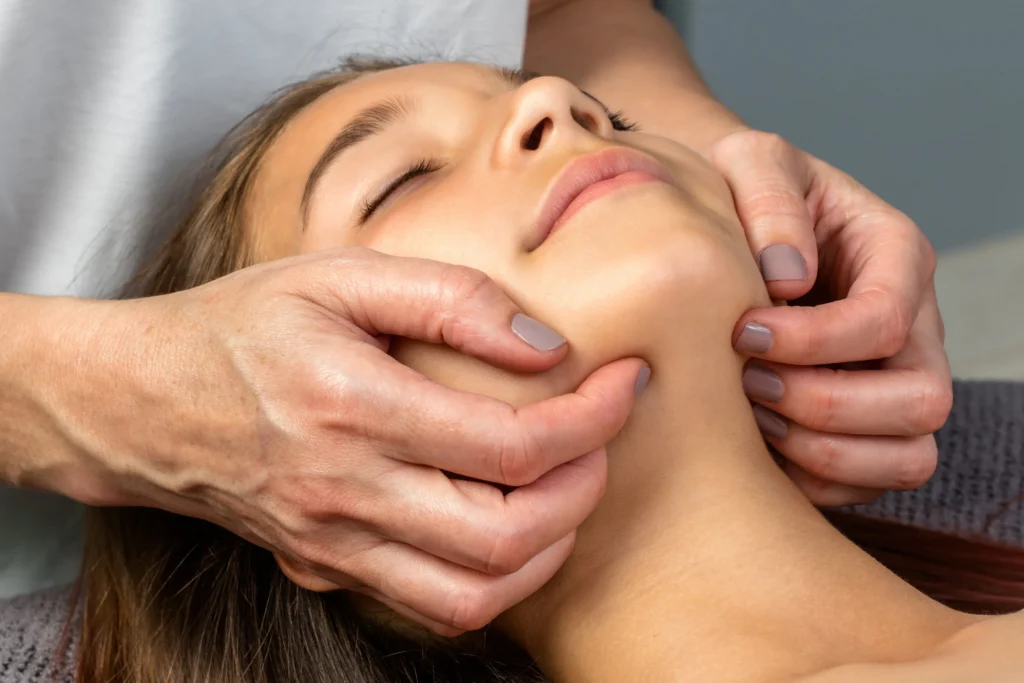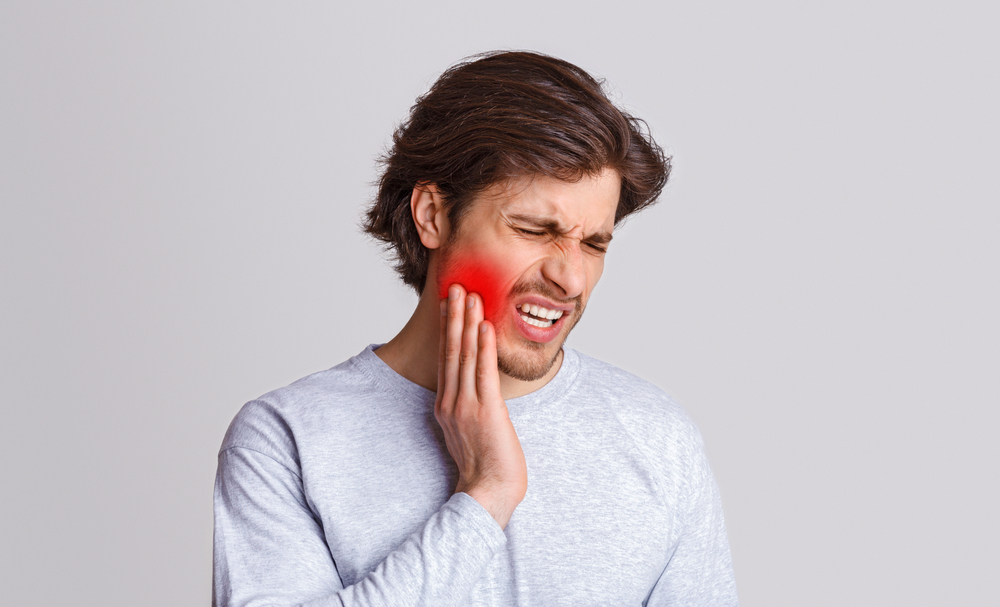TMJ treatment in Buford offers non-invasive solutions that relieve jaw pain, improve function, and restore comfort without surgery. Options include oral appliances, physical therapy, stress management, and advanced therapies such as ultrasound or Botox. At Buford Dentist, patients receive tailored care designed to address both the symptoms and root causes of TMJ disorder.

The temporomandibular joint connects your jaw to your skull. It controls movement for speaking, chewing, and swallowing. When the joint or surrounding muscles are strained or misaligned, pain and dysfunction occur. This condition is called temporomandibular joint disorder.
TMJ disorder develops from multiple factors. In Buford, dentists often see cases linked to:
TMJ disorder symptoms vary but often include:
Some patients also ask, does TMJ cause vertigo? because dizziness and ear-related symptoms can sometimes occur with TMJ disorder.
Diagnosis begins with a detailed evaluation. At Buford Dentist, we review medical and dental history, check bite alignment, and test range of motion. Imaging such as CBCT scans or MRI may be used to assess the joint. This ensures treatment addresses the exact cause of the problem.

Custom oral appliances are one of the most effective non-surgical solutions.
Patients often notice reduced muscle strain and fewer headaches within weeks.
Physical therapy restores function and reduces pain.
Some patients wonder, does exercise cause TMJ? Understanding the impact of certain exercises, such as weightlifting, helps prevent strain and supports long-term relief.
Patients receive at-home instructions to reinforce therapy sessions.
Advanced therapies available in Buford target deep tissues.
These treatments are valuable for patients seeking alternatives to medication.
Botulinum toxin injections, administered by trained professionals, relax overactive jaw muscles.
Botox is non-surgical but requires professional monitoring to ensure safe and effective use.
Stress is a common trigger for TMJ pain. Non-invasive stress management strategies help reduce jaw clenching.
At Buford Dentist, treatment plans often combine several approaches. For example:
This tailored approach ensures better long-term results.

Non-invasive care offers several advantages:
Surgery is considered only in severe cases. Examples include:
For most patients in Buford, surgery is unnecessary when treatment starts early.
Jennifer, a Buford resident, suffered from jaw pain and migraines for years. She visited Buford Dentist for help. After receiving a custom oral appliance and starting physical therapy, her pain score dropped from 8 to 2 within two months. She avoided surgery and regained her daily comfort.

Patients often feel anxious about their first TMJ consultation. Knowing the process helps.


Buford Dentist remains committed to providing accessible TMJ relief. Our clinic offers:
Patients in Buford choose non-invasive TMJ treatment for effective, safe, and affordable care. Contact Buford Dentist today to schedule your consultation and begin your path to jaw pain relief.